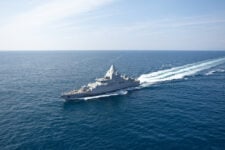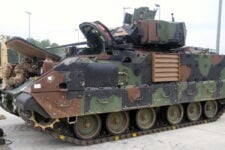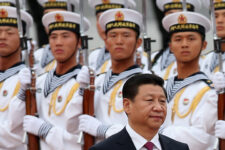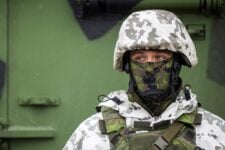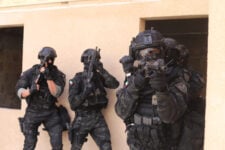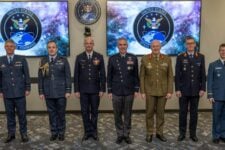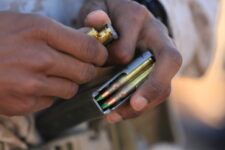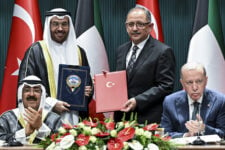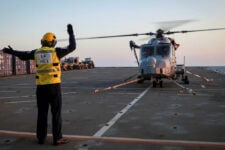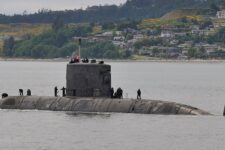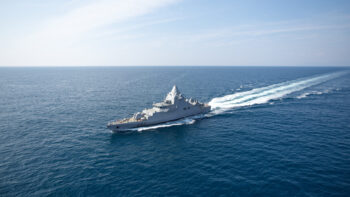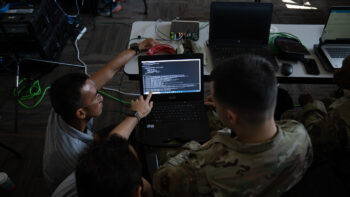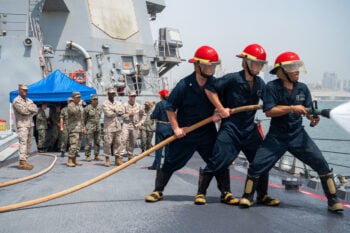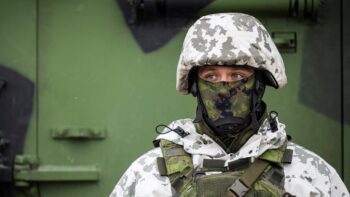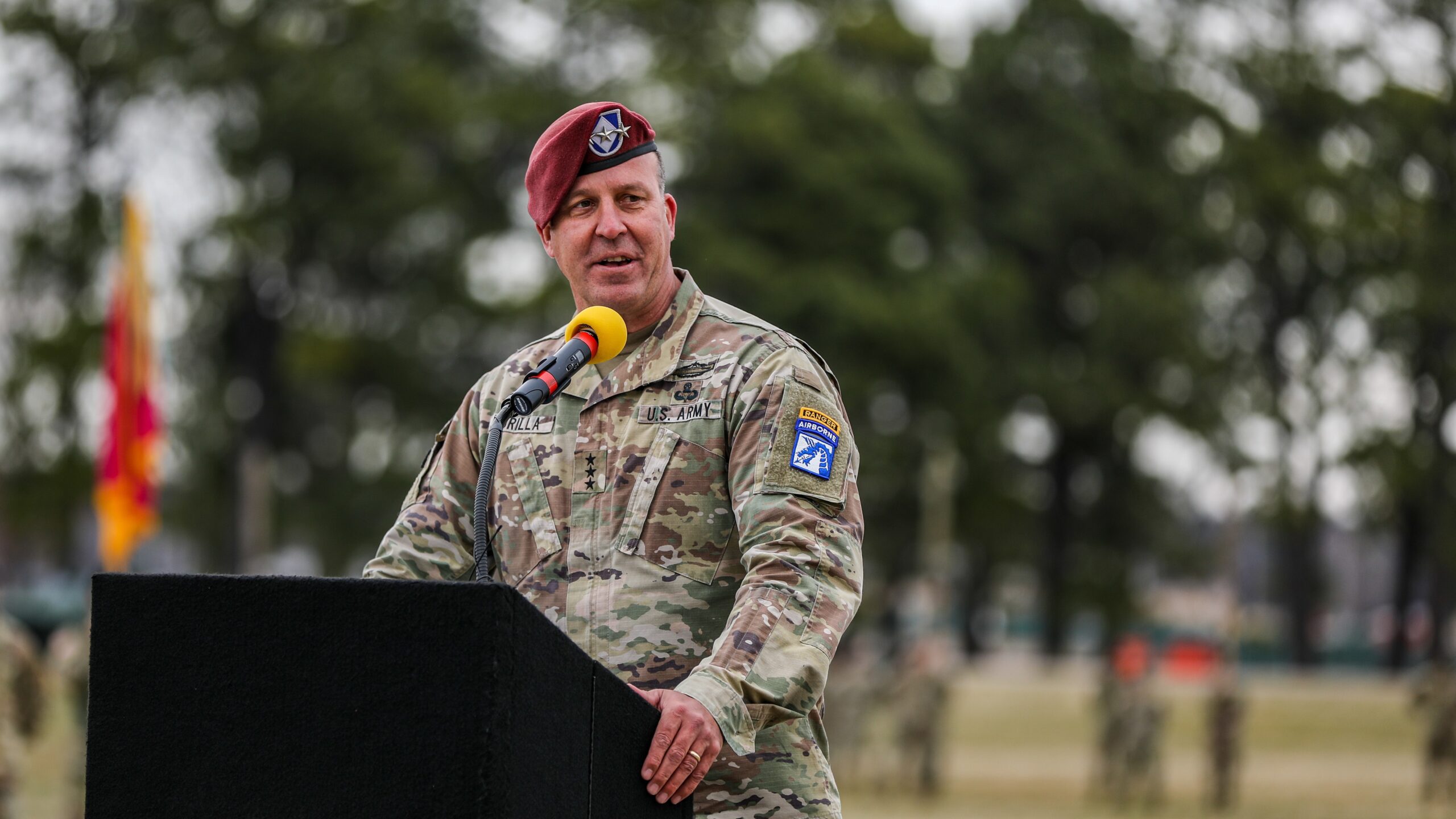
Lt. Gen. Michael “Erik” Kurilla, commander of the XVIII Airborne Corps, gives a speech at the 101st Airborne Division change of command on March 5, 2021.(U.S. Army/Spc. Andrea Notter)
WASHINGTON: Army Lt. Gen. Erik Kurilla, who is nominated to lead US Central Command, told senators today the US must continue to engage in the Middle East if it wants to successfully compete against Russia and China.
“China has significantly increased its investment and influence in the region, and Russia acts as a spoiler,” he told the Senate Armed Services Committee during his confirmation hearing. “If confirmed as the CENTCOM commander, I’ll protect American interests in the region with these challenges in mind.”
Kurilla is set to lead CENTCOM in an era where the command may be downgraded in importance as the Defense Department sets it sights on technological competition with China and tries to prevent a Russian invasion further into Ukraine.
Questions from lawmakers and Kurilla’s own schedule reflected that transition. As the current commander for the Army’s XVIII Airborne Corps at Fort Bragg, which recently sent troops to Germany to help support US allies as Russia builds up its forces on the Ukrainian border, Kurilla noted that he would fly to Europe immediately following the hearing to help oversee operations.
SASC Chairman Jack Reed, D-R.I., asked Kurilla directly whether he believes Russian President Vladimir Putin is looking for an “excuse” to invade Ukraine.
“I could not begin to speak for Putin, but I do know I am very concerned about a Russian incursion and invasion into Ukraine,” Kurilla responded.
Other members pressed Kurilla on China’s growing presence in the Middle East, something Kurilla said was of concern.
“Three of the top purchasers of [Chinese] UAVs are out of the Middle East,” he said, adding that he was also concerned about agreements between several Gulf nations and Chinese 5G provider Huawei. “We know the security concerns associated with that.”
“What we have to do is expose their predatory practices where they treat every country as a client or a customer, where we deal in relationships and we are partners and allies,” he added.
Lawmakers also questioned Kurilla about the situation in Afghanistan after the US military’s withdrawal from the country last summer and the subsequent takeover by the Taliban.
With no troops on the ground in Afghanistan, the US is now reliant on “over-the-horizon” capabilities such as drones to gather intelligence about terrorist groups and strike targets. But Kurilla pointed out that such capabilities are “resource intensive,” with about two-thirds of the MQ-9 Reaper’s 30-hour endurance used to fly to and from Afghanistan.
“To be able to keep a single sensor over a target, you’re going have to have two and a half MQ-9s — one taking off every 10 hours,” he said. Before the withdrawal from Afghanistan, “sometimes I would have up to 12 sensors on a target, to be able to follow individuals, develop the target” and also mitigate the risk to civilians who may be approaching an area where a strike could take place.
On the technological front, Kurilla expressed interest in expanding the use of artificial intelligence throughout CENTCOM, calling the tech the “next revolution in military affairs.” Specifically, he pointed to the Army XVIII Airborne Corps’ Scarlet Dragon exercise, where AI helped select a target that was struck by a Marine Corps F-35.
“We do these exercises quarterly to improve the capability of the targeting ability,” he said. “I would look to take that, if confirmed, down to CENTCOM and expound upon that.”
Emirate’s EDGE Group, Italy’s Fincantieri team up for $434M patrol vessel contract
The joint venture, dubbed Maestral, “will be awarded prime rights to non-NATO orders, and a number of strategic orders placed by selected NATO member countries … ,” according to a statement issued by the firm today.
